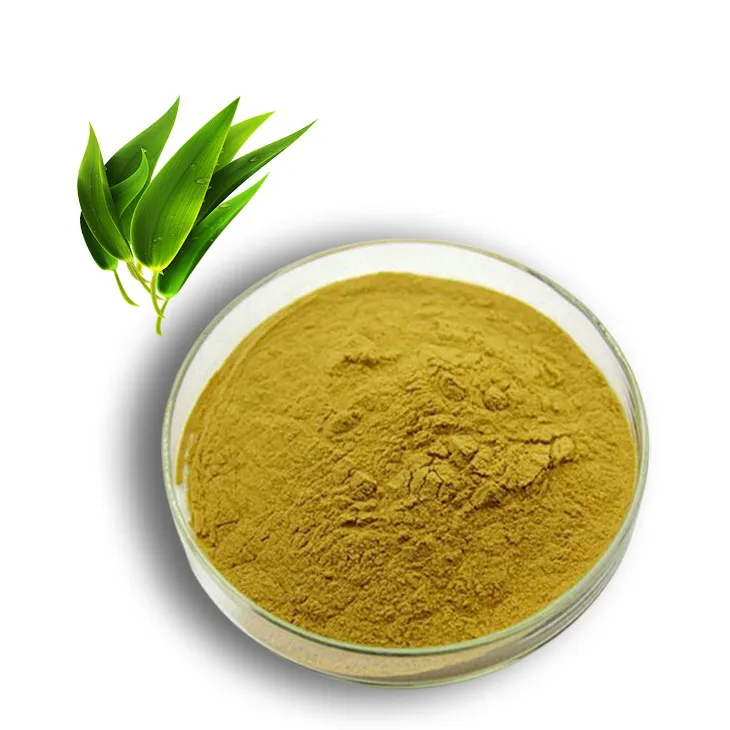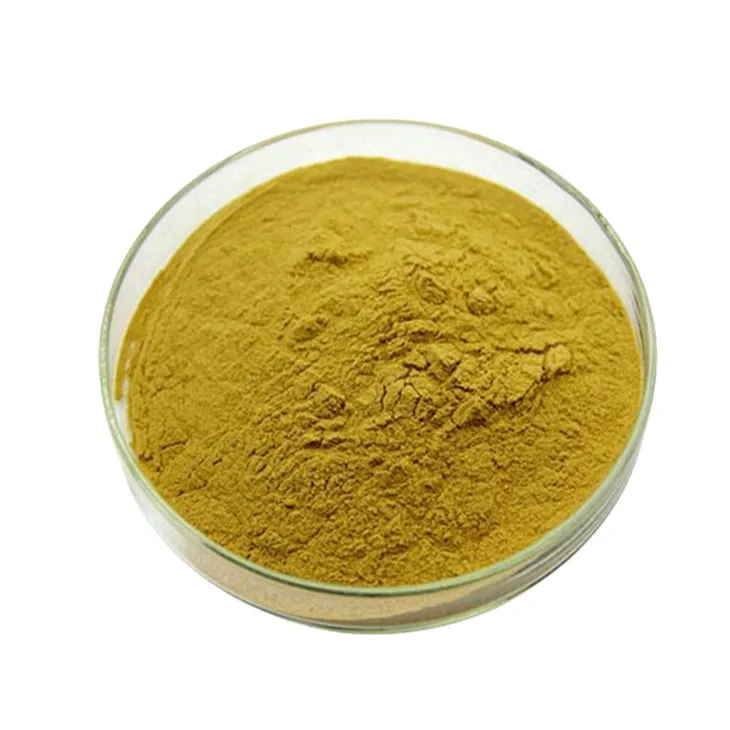- 0086-571-85302990
- sales@greenskybio.com
Does bamboo leaf extract have benefits for diabetes? Are these all safe and applicable for diabetic patients?
2024-11-14

1. Introduction
Diabetes mellitus is a chronic metabolic disorder that has reached epidemic proportions globally. Management of diabetes typically involves lifestyle modifications, such as diet and exercise, along with pharmacological interventions. In recent years, there has been an increasing interest in exploring natural products for the management of diabetes. Bamboo Leaf extract is one such natural product that has attracted attention due to its rich content of bioactive compounds. This article aims to comprehensively evaluate the potential benefits of Bamboo Leaf extract in diabetes management and its safety for diabetic patients.

2. Bioactive Components in Bamboo Leaf extract
2.1 Flavonoids
Flavonoids are a major class of bioactive compounds found in bamboo leaf extract. They possess a wide range of biological activities. In the context of diabetes, flavonoids may play a crucial role in blood sugar regulation.
Studies have shown that certain flavonoids can inhibit key enzymes involved in carbohydrate metabolism, such as alpha - glucosidase. By inhibiting alpha - glucosidase, the absorption of glucose from the intestine is slowed down, which can help in preventing post - prandial blood sugar spikes. For example, Quercetin, a common flavonoid in bamboo leaf extract, has been demonstrated to have alpha - glucosidase inhibitory activity in vitro.
2.2 Other Compounds
In addition to flavonoids, bamboo leaf extract also contains other bioactive components. These include phenolic acids, which have antioxidant properties. Oxidative stress is known to be elevated in diabetes, and antioxidant compounds can potentially counteract this by scavenging free radicals. Another component is polysaccharides, which may have immunomodulatory effects. Although their direct role in diabetes management is not fully understood, they could potentially contribute to overall health and well - being in diabetic patients.

3. Potential Impact on Diabetes Management
3.1 Blood Sugar Regulation
As mentioned earlier, the flavonoids in bamboo leaf extract can influence blood sugar levels. In animal studies, supplementation with bamboo leaf extract has been shown to result in a reduction in fasting blood glucose levels. This effect may be due to multiple mechanisms, including the inhibition of glucose - producing enzymes in the liver and improved insulin sensitivity.
Moreover, the slow - down of glucose absorption in the intestine by alpha - glucosidase inhibitors present in the extract can lead to a more stable blood glucose profile throughout the day. This is particularly important for diabetic patients, as maintaining stable blood sugar levels is a key aspect of diabetes management.
3.2 Insulin Sensitivity
Improved insulin sensitivity is another potential benefit of bamboo leaf extract. Insulin resistance is a common problem in type 2 diabetes. Some of the bioactive compounds in the extract may interact with insulin signaling pathways in cells.
For instance, flavonoids can modulate the activity of proteins involved in insulin receptor signaling, such as IRS - 1 (Insulin Receptor Substrate - 1). By enhancing the phosphorylation of IRS - 1, the downstream signaling of insulin can be improved, leading to better glucose uptake by cells. This ultimately results in a reduction in blood sugar levels.
3.3 Oxidative Stress Reduction
Diabetes is associated with increased oxidative stress, which can damage cells and tissues over time. The antioxidant compounds in bamboo leaf extract, such as phenolic acids and flavonoids, can scavenge free radicals and reduce oxidative stress.
By reducing oxidative stress, the extract may help in preventing some of the long - term complications associated with diabetes, such as neuropathy, retinopathy, and nephropathy. In experimental models, treatment with bamboo leaf extract has been shown to decrease markers of oxidative stress, such as malondialdehyde (MDA) levels, and increase antioxidant enzyme activities, like superoxide dismutase (SOD).

4. Safety Aspects for Diabetic Patients
4.1 Potential Interactions with Medications
One of the major concerns regarding the use of bamboo leaf extract in diabetic patients is its potential interactions with medications. Diabetic patients often take medications such as metformin, sulfonylureas, or insulin.
Some bioactive compounds in the extract may interact with these medications. For example, if the extract enhances the hypoglycemic effect of medications, it could lead to an increased risk of hypoglycemia (low blood sugar). On the other hand, it is also possible that the extract could interfere with the absorption or metabolism of medications, reducing their effectiveness.
Therefore, it is crucial for diabetic patients to consult their healthcare providers before starting to use bamboo leaf extract, especially if they are on multiple medications.
4.2 Individual Sensitivities
Individual sensitivities to bamboo leaf extract can also vary. Some people may experience allergic reactions to the extract. Allergic symptoms can range from mild skin rashes to more severe respiratory problems.
Moreover, the extract may not be suitable for all diabetic patients. For example, patients with certain pre - existing medical conditions, such as liver or kidney diseases, may need to be more cautious when using the extract. The liver and kidneys play important roles in metabolizing and excreting the compounds in the extract, and if these organs are impaired, the accumulation of the extract's components could potentially cause adverse effects.

5. Conclusion
Bamboo leaf extract contains bioactive components such as flavonoids that have potential benefits in diabetes management, including blood sugar regulation, improved insulin sensitivity, and reduction of oxidative stress. However, there are also safety concerns, particularly regarding potential interactions with medications and individual sensitivities.
Diabetic patients should not use bamboo leaf extract without first consulting their healthcare providers. Further research is needed to fully understand the long - term effects of bamboo leaf extract in diabetes management and to establish appropriate dosage regimens for safe and effective use.
FAQ:
1. What are the main bioactive components in bamboo leaf extract?
The main bioactive components in bamboo leaf extract are flavonoids. Flavonoids are known for their various health - promoting properties. They can potentially play a role in antioxidant activities, anti - inflammatory responses, and in the case of diabetes, may be involved in blood sugar regulation and insulin sensitivity improvement.
2. How might bamboo leaf extract regulate blood sugar?
It is hypothesized that the flavonoids in bamboo leaf extract may regulate blood sugar through multiple mechanisms. One possible way is by enhancing insulin sensitivity. When cells become more sensitive to insulin, they can more effectively take up glucose from the bloodstream, thus reducing blood sugar levels. Another potential mechanism could be related to its antioxidant effects. By reducing oxidative stress, it may help protect pancreatic beta - cells, which are responsible for insulin production. However, more research is needed to fully understand these mechanisms.
3. Can bamboo leaf extract really improve insulin sensitivity?
While there is some evidence suggesting that the bioactive components in bamboo leaf extract, especially flavonoids, may have the potential to improve insulin sensitivity, the current evidence is not conclusive. Some in - vitro and animal studies have shown positive results, but human clinical trials are limited. Insulin sensitivity is a complex physiological process, and more comprehensive research on bamboo leaf extract's effect on it in humans is required.
4. Are there any side effects of bamboo leaf extract for diabetic patients?
Although bamboo leaf extract is generally considered safe, some potential side effects may exist for diabetic patients. For example, it may interact with certain medications that diabetic patients are taking. Also, individual sensitivities can vary. Some people may experience allergic reactions or gastrointestinal discomfort. Therefore, before using bamboo leaf extract, diabetic patients should consult their healthcare providers.
5. How should diabetic patients use bamboo leaf extract?
Diabetic patients should not use bamboo leaf extract without medical advice. If a healthcare provider deems it potentially beneficial, they will likely recommend a proper dosage and method of use. It's important to note that self - medicating with bamboo leaf extract can be dangerous, especially considering the potential interactions with diabetes medications and the individual variability in responses.
Related literature
- The Role of Bamboo Leaf Extract in Health: A Review"
- "Bioactive Compounds in Bamboo Leaf Extract and Their Potential Therapeutic Applications"
- "Bamboo Leaf Extract and Metabolic Disorders: Current Research and Future Perspectives"
- ▶ Hesperidin
- ▶ Citrus Bioflavonoids
- ▶ Plant Extract
- ▶ lycopene
- ▶ Diosmin
- ▶ Grape seed extract
- ▶ Sea buckthorn Juice Powder
- ▶ Fruit Juice Powder
- ▶ Hops Extract
- ▶ Artichoke Extract
- ▶ Mushroom extract
- ▶ Astaxanthin
- ▶ Green Tea Extract
- ▶ Curcumin
- ▶ Horse Chestnut Extract
- ▶ Other Product
- ▶ Boswellia Serrata Extract
- ▶ Resveratrol
- ▶ Marigold Extract
- ▶ Grape Leaf Extract
- ▶ New Product
- ▶ Aminolevulinic acid
- ▶ Cranberry Extract
- ▶ Red Yeast Rice
- ▶ Red Wine Extract
-
Lemon Balm Extract
2024-11-14
-
Natural grape seed extract
2024-11-14
-
Tormentil Extract
2024-11-14
-
Agaricus Blazei Extract
2024-11-14
-
Kelp Extract Powder
2024-11-14
-
Propolis Extract Powder
2024-11-14
-
Withania Somnifera Extract
2024-11-14
-
Ivy Extract
2024-11-14
-
Europen Bilberry Extract
2024-11-14
-
Medicinal Marshmallow Extract
2024-11-14





















